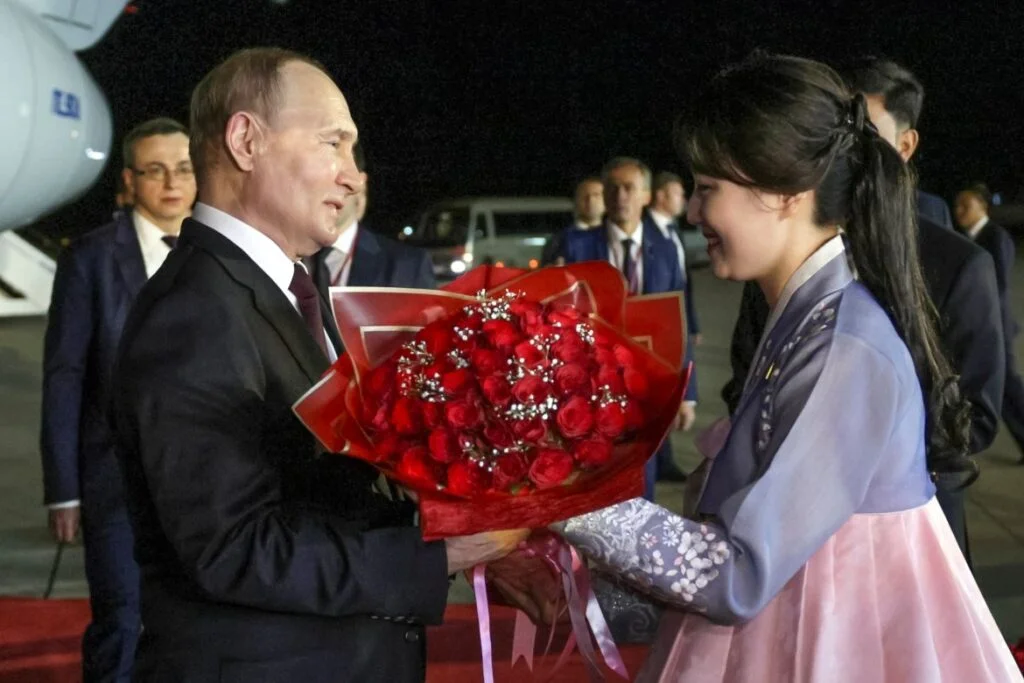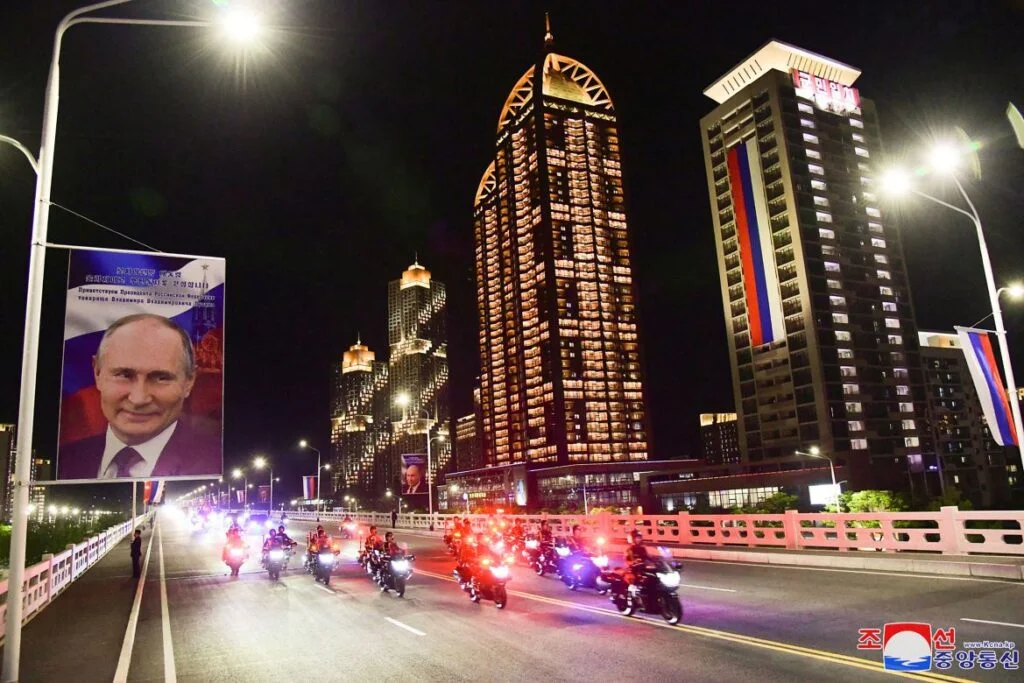Vladimir Putin’s Rare Visit to North Korea: Strengthening Strategic Relations
Vladimir Putin’s Rare Visit to North Korea: Strengthening Strategic Relations
Introduction
In a notable development in international relations, Russian President Vladimir Putin made a rare visit to North Korea, marking a significant moment in the deepening anti-West alignment between the two nations.
This official visit, the first in 24 years, saw Putin and North Korean leader Kim Jong Un engaging in talks aimed at strengthening their strategic relations. The visit underscores the growing isolation of both countries from the West and their mutual support in geopolitical matters.
A Lavish Welcome to Vladimir Putin

Putin’s arrival in Pyongyang was marked by lavish ceremonies and cheering crowds, reflecting the importance of this diplomatic visit. North Korea rolled out the red carpet for the Russian leader, emphasizing the significance of their strategic partnership.
This grand reception included vows of support from Kim Jong Un, highlighting the strong ties between the two nations.
Deepening Anti-West Alignment
The visit comes at a time when both Russia and North Korea face significant international isolation due to their respective actions. Putin’s trip to Pyongyang is seen as a move to solidify an anti-West alignment.
The North Korean leader declared his full support for Russia, particularly in the context of the ongoing conflict in Ukraine.
Strategic Relations and Mutual Support
During the visit, Putin and Kim Jong Un discussed various aspects of their bilateral relations, aiming to develop what they termed “strategic fortress relations.” The talks focused on enhancing cooperation in various fields, reflecting a mutual desire to counteract Western pressure and sanctions.
This alignment is not just symbolic but also strategic, with both leaders seeking to bolster their nations’ positions on the global stage.
Ceremonies and Cheering Crowds

The North Korean capital witnessed a series of ceremonies and public displays of support for Putin. The Russian leader was greeted with enthusiastic cheers from the crowds, indicating the warm reception he received from the North Korean people.
Such displays are indicative of the strong diplomatic ties that have been forged between the two countries over the years.
Vows of Support and Future Cooperation
Kim Jong Un’s vows of support for Russia were a central theme of the visit. He assured Putin of North Korea’s unwavering solidarity, particularly in the context of Russia’s geopolitical struggles.
This support is seen as a critical element of the two nations’ strategy to withstand Western pressures and maintain their sovereignty and influence in their respective regions.
Conclusion
Vladimir Putin’s rare visit to North Korea marks a significant milestone in the evolving geopolitical landscape. The deepening strategic relations between Russia and North Korea, underscored by mutual support and anti-West alignment, highlight the shifting alliances and the increasing isolation of both nations from the Western world.
This visit not only solidifies their partnership but also sends a clear message of their united front in the face of international pressures.
Frequently Asked Questions
What was the purpose of Putin’s visit to North Korea?
The visit aimed to strengthen the strategic relations between Russia and North Korea, enhance mutual support, and deepen their anti-West alignment.
How did North Korea welcome Putin?
Putin received a lavish welcome, including red carpet ceremonies, cheering crowds, and public displays of support, reflecting the importance of his visit.
What were the key outcomes of the visit?
The key outcomes included vows of support from Kim Jong Un, discussions on enhancing strategic relations, and a reaffirmation of their mutual anti-West stance.

